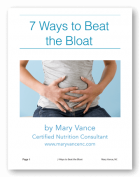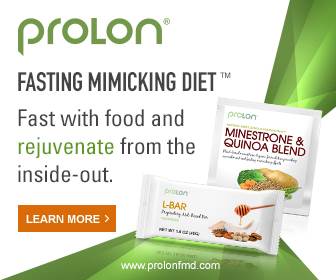“Jolene” (not her real name) came to see me a month after being diagnosed with Ulcerative Colitis, a type of irritable bowel disease (IBD). She reported “totally irregular stools” that would range between diarrhea and hard pellets, and she had mucous in her stool, which was often bloody, and struggled with gas, gurgling stomach, and colitis cramps. She felt emotionally overwhelmed and frustrated that her doctor wasn’t much help.
She was put on corticosteroids for the flares she experienced, and her doctor prescribed a strong drug to help modulate inflammation in her colon. But Jolene didn’t want to be on these drugs because of their side effects. She wanted a more natural solution, and she wanted to know how she ended up with ulcerative colitis. Jolene knew that changing her diet and working on gut health could help.
If you’ve been diagnosed with Irritable Bowel Disease, you know that the painful and sometimes extreme symptoms can be scary and overwhelming. Maybe you have to scan each new location for a bathroom or never know when you’ll have a flareup of symptoms that can ruin your day. Or maybe even your month. Dealing with IBD can drastically lower your quality of life.
But there is hope.
What is Irritable Bowel Disease?
Irritable bowel disease is a gastrointestinal (GI) disorder accompanied by abdominal cramping and stomach pain, diarrhea, and/or constipation. It’s reported that IBD affects 1.6 million Americans, most of whom are diagnosed before the age of 35. Interestingly enough, IBD typically only shows up in people living in developed countries and is most prominent in the US. We theorize this is due to our heavily processed Standard American Diet which has caused declining levels of bacterial species in our colon.
There’s a wide variety of symptoms that present themselves with IBD which is why it can be so confusing to know what issue you’re having without a diagnosis from a doctor. IBD is an umbrella term that includes both Crohn’s disease and ulcerative colitis (UC). Both conditions are typically caused by inflammation and an overactive immune system that is attacking your own tissue.
Normally, when a virus or bacteria enters the body, your system sends white blood cells to attack the invader. In the case of IBD, the immune system mistakes food, bacteria, and other substances in the digestive tract as invaders and attacks your system causing inflammation and flareups of symptoms.
Conventional medicine does not currently have a long-term strategy for getting IBD patients well without meds. However, a holistic approach including diet, lifestyle changes, and temporary use of supplements has been shown to relieve symptoms and even put IBD into remission.
Types of IBD
Irritable bowel disease refers to both Crohn’s disease and UC; however, both diseases are slightly different and affect different areas of the digestive tract.
Symptoms of Crohn’s disease can include:
- frequent diarrhea
- Occasional constipation
- Abdominal pain
- Fever
- Bloody stool
- Fatigue
- Skin conditions
- Joint pain
- Malnutrition
- Weight loss
- Fistulas
Symptoms of UC can include:
- Abdominal pain
- Loose stools
- Bloody stool
- Urgency of bowel movement
- Fatigue
- No appetite
- Weight loss
- Malnutrition
Over time, inflammation from the constant attacks causes damage to the digestive tract, making it difficult for the body to absorb the nutrients from your food. Long term this can cause deficiencies that impact energy, immune health, hormones, and brain health.
IBD is diagnosed by a doctor after ruling out any other possible issues. Diagnosing IBD is done through either a blood test (checking for anemia or infection), imaging procedures (X-ray, CT, or MRI), or an endoscopic procedure (colonoscopy).
Symptoms
There’s a variety of symptoms that show up with IBD, which can be confused with other issues like celiac disease or Irritable Bowel Syndrome (IBS). Symptoms can also vary in severity from person to person. One person might have uncomfortable bloating while another has painful and unpredictable flares of diarrhea. Because IBD symptoms don’t always show up the same for each person it’s important to talk to a doctor so they can refer you to a gastrointestinal specialist for a diagnosis.
Symptoms associated with IBD in general include the following:
- Diarrhea
- Stomach pain and cramping
- Bloating
- Weight loss
- Fatigue
- Bloody stool
- Vomiting
What causes Irritable Bowel Disease?
There are a number of factors that cause a person to develop IBD.
The first factor to consider is genetics: People who have a family history of IBD are at higher risk of developing the disease because we inherit our mother’s microbiome. There is still ongoing research on the connection, so even if someone in your family has been diagnosed, it doesn’t mean you will develop the disease as well.
Using certain medications, such as birth control pills, antibiotics, and non-steroid anti-inflammatory medications (aspirin and ibuprofen), also puts a person at a higher risk of developing IBD. Overuse of medications can destroy the healthy microbiome of your gut making you more susceptible to digestive issues.
Another factor that potentially causes IBD to develop is smoking: Smoking alone can double your risk of developing IBD.
Finally, diet is another major component in disease development, especially when it involves the gut. Diets high in processed or damaged fats such as hydrogenated oils and refined sugars increase the risk of developing IBD. The Standard American Diet (SAD) is high in poor quality meat, sugar, damaged fats, processed foods, and refined grains. Over time, this diet damages the diversity of our gut bacteria, making it a breeding ground for all kinds of inflammatory diseases.
Conventional Treatment for IBD
It’s heartbreaking to read through study after study from major medical organizations and see the words no cure. But is is possible to put IBD into remission! Conventional treatment typically includes the use of medications to reduce symptoms and prevent complications and isn’t as thorough as the holistic model.
Some of the medications that are used for IBD include the following:
- Steroids
- Antibiotics
- Immune modifiers, such as azathioprine and 6-MP
- Aminosalicylates, such as 5-ASA
Meds can provide immense relief and help initially, but they do not address the root of the problem, reduce the inflammation, and heal the digestive tract. Plus, many of the meds have pretty serious side effects, something that worried Jolene.
Conventional treatment for both Crohn’s disease and UC has a few recommendations for diet changes to manage inflammation. Conventional medical diet recs for IBD include fiber-rich foods, lean protein, grains, fruit, and probiotic-rich foods like yogurt. Trouble is, many of these foods such as fiber, grains, and dairy can worsen pain and even cause flares.
Each person responds differently to certain foods and there isn’t one diet that works for everyone. It’s important to work with someone who specializes in IBD and will help you monitor symptoms and understand which foods are right for you individually to help you heal your gut.
Holistic Treatment Model for IBD
When you take a holistic approach to treatment for IBD, you are seeking to find the underlying cause and trigger so you can address these issues to heal your gut. You’ll find that it’s never as simple as taking a pill. Illness develops over time and healing naturally involves diet and lifestyle changes to reverse the disease. When I work with people with an IBD diagnosis, we start by looking at the four pillars of health.
Stress
Stress plays a major role in many different health issues and is arguably a main cause of disease and imbalance. A stressful lifestyle is anything from a high-pressure job, toxic relationships, poor diet, lack of sleep, or feeling obligated to take on more than you can handle. Excess cortisol production from stress greatly affects your gut health and even the bacteria who live there. Reevaluate your obligations and find ways to simplify your life. Stress relief is complicated and takes time to improve. Read my article on how to support yourself through stress.
Sleep
Sleep is an essential part of maintaining your physical and mental health, AND it’s crucial for stress relief. I always say it’s the cheapest way to improve all facets of health–and you can start tonight! Many people don’t prioritize sleep or have trouble sleeping. In fact, as many as 50-70 millions Americans of all ages suffer from some sort of sleep-related problem. Sleep is crucial for proper immune function, concentration, hormone regulation, and so much more. Check out my sleep tips here.
Nutrition
Nutrition is a key element to your overall well-being (duh). Working to eliminate the obvious junk sugar, processed foods, fried food, damaging fats, and gluten–especially refined white flour– from your diet is a start. Determining which foods are right for you and your gut health is not as easy as following a generic diet, but there are certain foods such as zinc-rich and anti-inflammatory foods to include that will speed healing. Incorporate foods that promote nutrient absorption in the GI tract, such as probiotic foods, will help to heal your gut. You also want to increase bacterial diversity over time (more on that here). Before making any major dietary or lifestyle changes, be sure to talk to a nutritionist in order to find what foods work best for your body.
Exercise
Finding the right form of exercise is important to get your body moving. Even if you don’t like high-intensity workouts, something as simple as 30 minutes of walking will still be beneficial for your health. Moving your body produces endorphins, burns calories, and helps to manage your stress levels. There are hundreds of different ways to get your body moving, from gardening to interval training to yoga or hiking. It all counts.
IBD Supplement Protocol
Let me stress that each person has different needs on his/her healing journey, but here is the basic protocol I recommend for most of my IBD people. I strongly recommend a stool test to assess overall intestinal health and to check for any bacteria that may be IBD triggers. I use the GI MAP which you can order here.
Diet:
- Avoid all grains and grain products including wheat, rye, oats, barley, spelt, kamut, buckwheat, bulgur, amaranth, quinoa, teff. This includes foods such as crackers, cookies, bread, pasta and pastries.
- Avoid dairy products. Goat’s milk and cheese from goat’s milk may be acceptable if you are not sensitive to them.
- Avoid sugar and sweetened products. Replace sugar with the polyol sugar xylitol.
- Avoid carageenan-containing products and guar gums since they may irritate the GI tract.
- Avoid any known food allergies.
- Avoid inflammatory vegetable oils
- Increase anti-inflammatory and omega 3 rich foods
Supplements to help heal the gut and reduce inflammation:
- Colostrum supports immune and intestinal health
- GI Revive heals the gut lining
- Fish oil to reduce inflammation– a crucial part of gut healing
- Probiotic
- Digestive enzyme to help you break down and absorb nutrients while the gut is healing
- Anti-microbial herbs may be necessary depending on what shows up on the GI MAP test. It is so important to normalize the ratio of good and bad bacteria in the large intestine to heal IBD.
The Importance of a Healthcare Team
After a diagnosis, it can be overwhelming to know what’s next. The basis for holistic healing is addressing your physical, mental, spiritual, and social needs. Nothing malfunctions in isolation in the body, and all aspects of your life should be addressed in order to find healing. There isn’t one doctor who can address all areas of your life; I often recommend acupuncture, nutrition consultation, and a medical doctor to help you.
After Jolene and I worked together for several months, she saw a 70% improvement in her symptoms, and was experiencing no flares (a huge success!), no gas or bloating, and she was able to cut down on her meds! We found a mostly paleo anti-inflammatory diet worked really well for her. She still checks in from time to time, and it hasn’t been 100% smooth sailing all the way, but Jolene knows how to address flares now and even what triggers them so she can work to prevent them.
Click here to apply to work with me if you’d like help with IBD.
Pin it!

Mary Vance is a Certified Nutrition Consultant and author specializing in digestive health. She combines a science-based approach with natural therapies to rebalance the body. In addition to her 1:1 coaching, she offers courses to help you heal your gut and improve your health. Mary lives in San Francisco and Lake Tahoe in Northern California. Read more about her coaching practice here and her background here.










